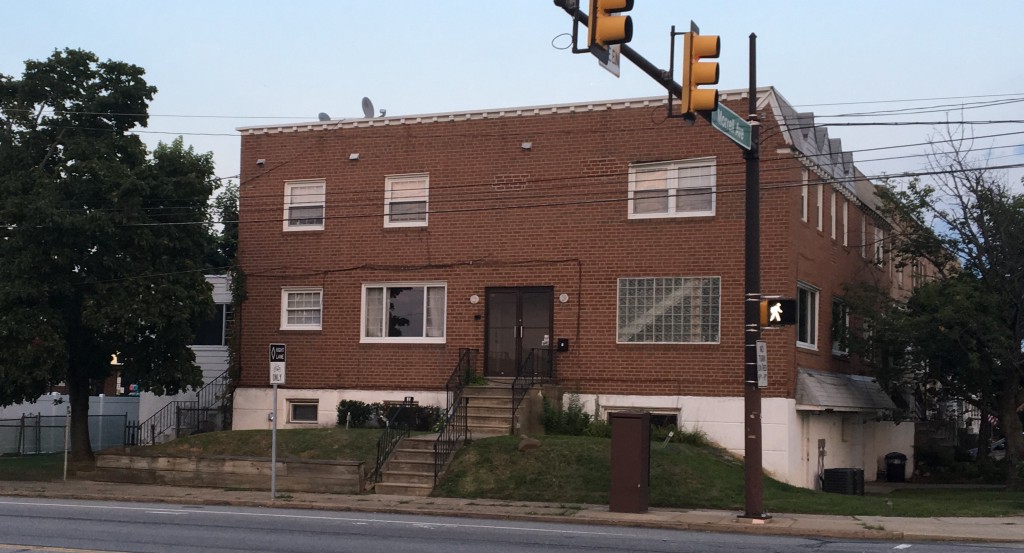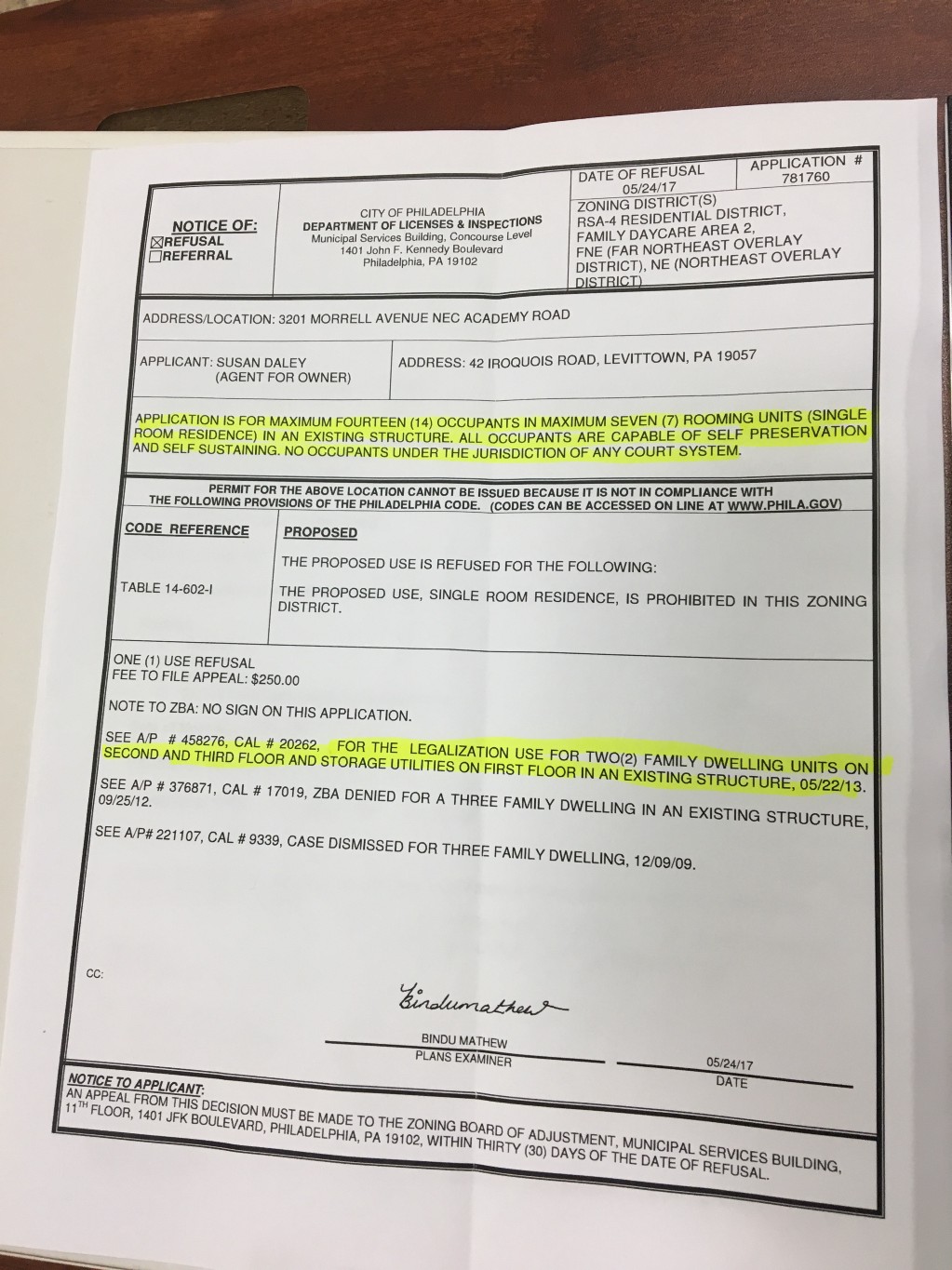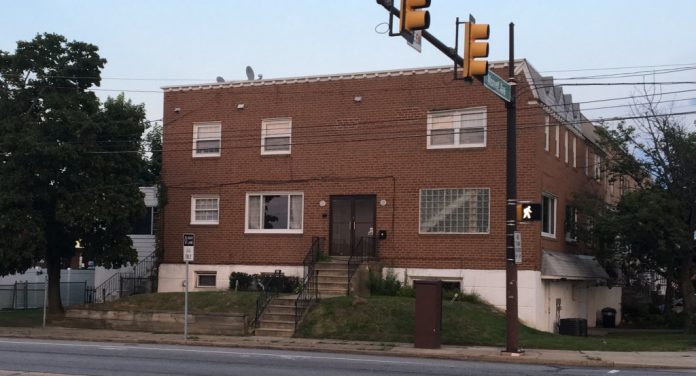Neighbors voted to oppose a zoning permit for a rooming house for up to 14 recovering drug and alcohol abusers.

West Torresdale and Morrell Park residents have voted overwhelmingly against a local property owner’s effort to obtain a city zoning permit to operate a rooming house for up to 14 recovering drug and alcohol abusers.
Among more than 100 people who packed the 8th Police District’s community room for a July 19 meeting hosted by the West Torresdale Civic Association, 87 voted against the zoning application for 3201 Morrell Ave., while just seven voted to support it. Meeting attendees who do not live in the immediate neighborhood were asked not to cast votes.
Some residents said they opposed the recovery house because its residents would bring too many cars and potential visitors to the block. Other residents said they’re worried about excessive trash and the overall maintenance of the property. Some suggested men in rehab could pose a safety threat to the community.
Other residents argued for the rehab house, including one man who said he recently lost his son to drug addiction.
“Their only alternative is prison, (where there’s) no help,” the man said.
WTCA President Ken Law said the civic group will submit a letter of opposition to the city’s Zoning Board of Adjustment, which is scheduled to hear testimony in the case on Aug. 16. Residents may also testify at the hearing.
The issue has attracted widespread interest among residents since the WTCA announced on July 8 its meeting via email and Facebook. Leaders of the civic group called the special session rather than delay the case until their next regular meeting in September.
Bucks County-based Way of Life Sober Living seeks to legalize use of the duplex rowhouse as a seven-unit residence for up to 14 people. The applicant’s attorney, Craig R. Lewis, said about a dozen residents and staff already live at the site.
Way of Life, a for-profit company, operates six other recovery houses in Bucks County. The company states on its website that it values its “reputation for affordable, clean and comfortable accommodations which are not overcrowded.”
The City of Philadelphia’s online records show the property last sold in 2011 for $125,000, but private real estate agency listings show it sold again last July for $229,000. According to Lewis, Way of Life’s president, Barb Williamson, is the managing owner.
It remains unclear when Way of Life began placing its clients there, but City Councilman Brian O’Neill said the addiction rehab agency is in violation of city code.
“It’s illegal now and has been since day one,” O’Neill said.
Lewis later told the Northeast Times that Williamson was misled by the seller’s real estate agent and attorney when she bought the property for Way of Life. The sales listing incorrectly promoted the property as a “quad,” meaning that it contained four independent units, Lewis said. In fact, the prior owner had configured the site into three units — a triplex — with one residence in the walk-in basement and others on the first and second stories.
But when Williamson applied to the city for a rental license, an inspector informed her that the basement unit is not legal. Williamson applied for a zoning variance to legalize it. In the meantime, residents can continue to live there pending the zoning appeal because there is no imminent safety threat.

A notice of refusal issued by the city’s Department of Licenses and Inspection on May 24, states that L&I initially rejected the application because single-room residences are prohibited in the “RSA-4” zoning district. Lewis argues that the set-up is not a rooming house and that the current living arrangement is protected by the federal Fair Housing Act and Americans with Disabilities Act, although the attorney acknowledges that the basement unit was never legalized through zoning.
O’Neill, who has been dealing with local zoning cases since taking office in 1980, said the issue on the table involves the specific use of the property and not necessarily its configuration as a rooming house. He noted the refusal document cites three prior zoning applications involving the property.
In 2009, an owner applied to convert the duplex into a triplex, presumably by creating a third unit in the building’s walk-in basement. The city rejected the application and the zoning board agreed. Three years later, an owner again applied to legalize a third unit. The city and zoning board again rejected the application.
But in 2013, the zoning board granted a variance to an owner that allowed for two units on the first and second stories, while maintaining the basement as a storage use. O’Neill said the zoning board may view the property as a rooming house already, based on the 2013 ruling, and could view the current application as a request merely to expand the rooming house use.
During the June 19 meeting, the owner of an adjoining commercial building said he saw a contractor making renovations to the Morrell property and asked to speak to the homeowner, but the contractor didn’t help him make that contact. Further, the neighboring property owner claimed residents and visitors to the Morrell property were parking illegally in his lot, so he started having the strange vehicles towed. He also installed a new fence at the property line.
The commercial property owner said he has hired a lawyer and plans to oppose the rehab house at the zoning board hearing.
Lewis said that the prior owner was responsible for the property’s renovations, not Way of Life. ••
William Kenny can be reached at 215–354–3031 or [email protected]. Follow the Times on Twitter @NETimesOfficial.





